Since 2015, the World Antimicrobial Awareness Week (WAAW) global campaign has been celebrated annually to raise awareness and understanding of AMR, and to emphasise the critical role part we all play in reducing its further emergence and spread. This year’s theme ‘Preventing Antimicrobial Resistance Together’ touched on a central theme at ICARS – Partnership. As one of our core principles, it is built into all our efforts and a central to how we work.
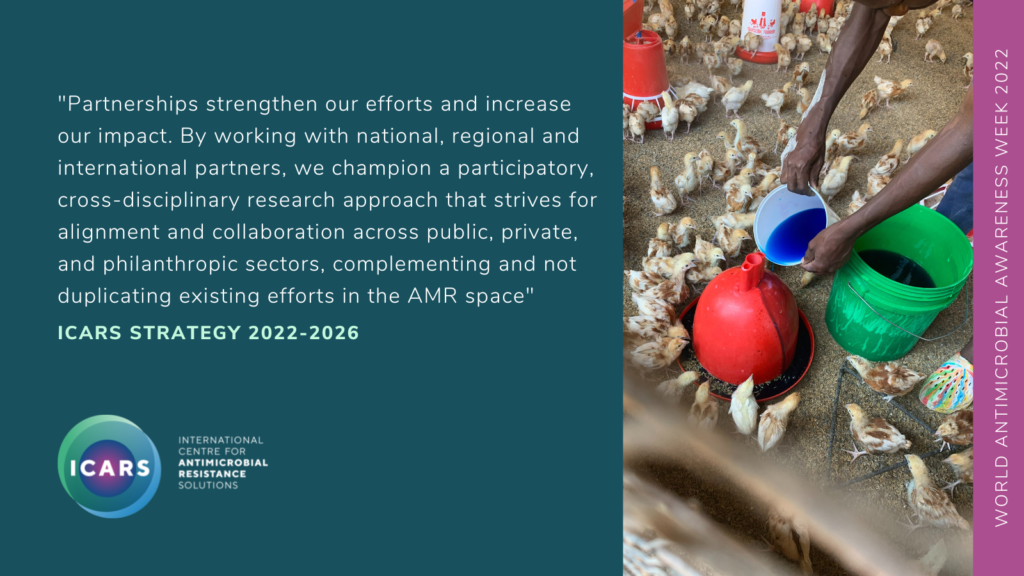
ICARS takes a top-down, bottom-up approach – securing government commitment, while engaging researchers and stakeholders on the ground. Now with more than 20 projects in implementation across four regions, ICARS has built a diverse network of partners. To mark the campaign, project teams driving project implementation reflected on how partnership and collaboration adds value to their work.
Dr Kenneth Chawinga is engaged in a Zambian project working on Optimising vaccination and biosecurity regimes to enhance fight against AMR in commercial poultry production.
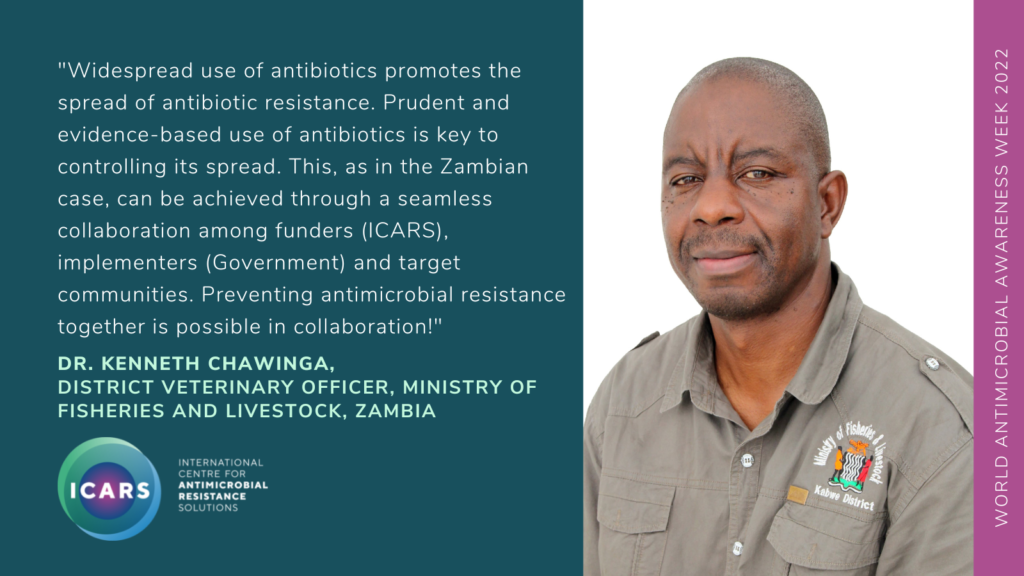
Dr Marika Tsereteli reflects on how partnership opens channels for knowledge sharing. In this case, learning about modern stewardship methods to support a Georgian project aiming to foster the appropriate use of antibiotics for Surgical Antibiotic Prophylaxis.
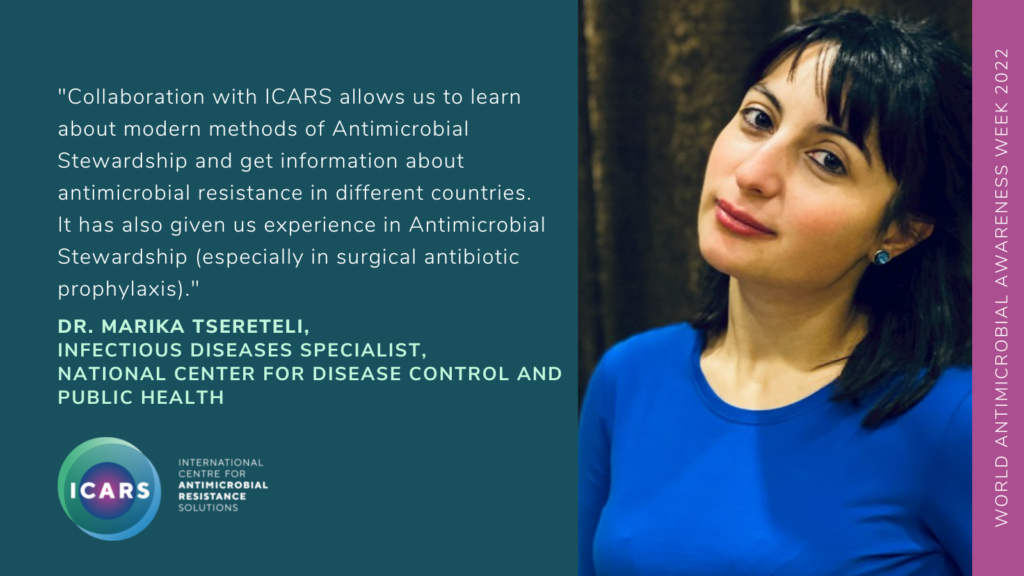
AMR is a threat to human, animal and environmental health, that affects societies and economies worldwide. Dr Japheth Opintan is engaged in a One Health project in Ghana piloting how a wastewater treatment technology could reduce AMR emergence.
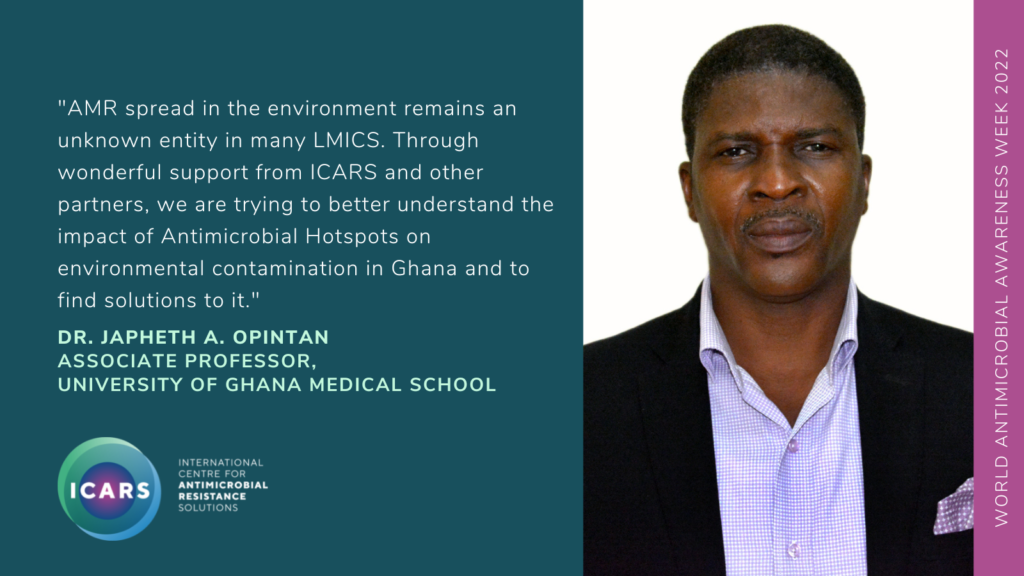
In Zambia, a partnership between ICARS, Wellcome and Eden University is using innovative community engagement approaches to improve the management of urinary tract infections in women. Three project team members reflected on how the collaborative project has shown the value of engaging diverse stakeholders, aiming for long-term behaviour change, and co-creating solutions that make way for policy change.
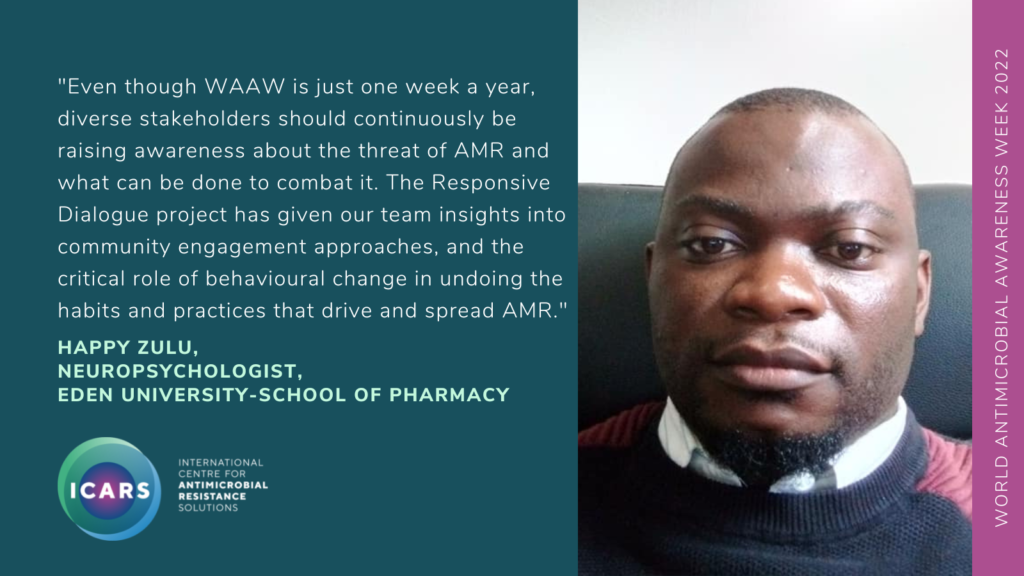
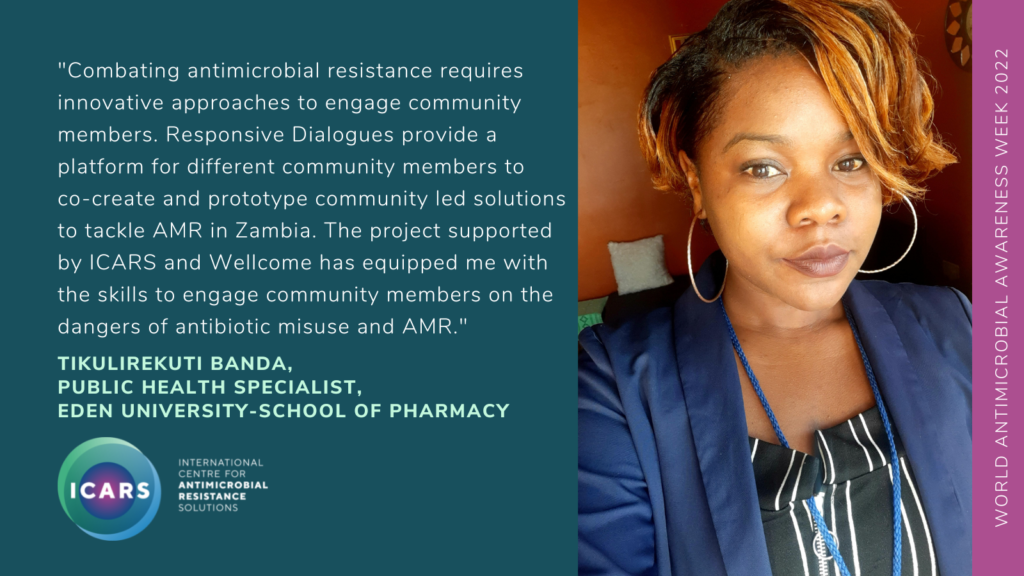
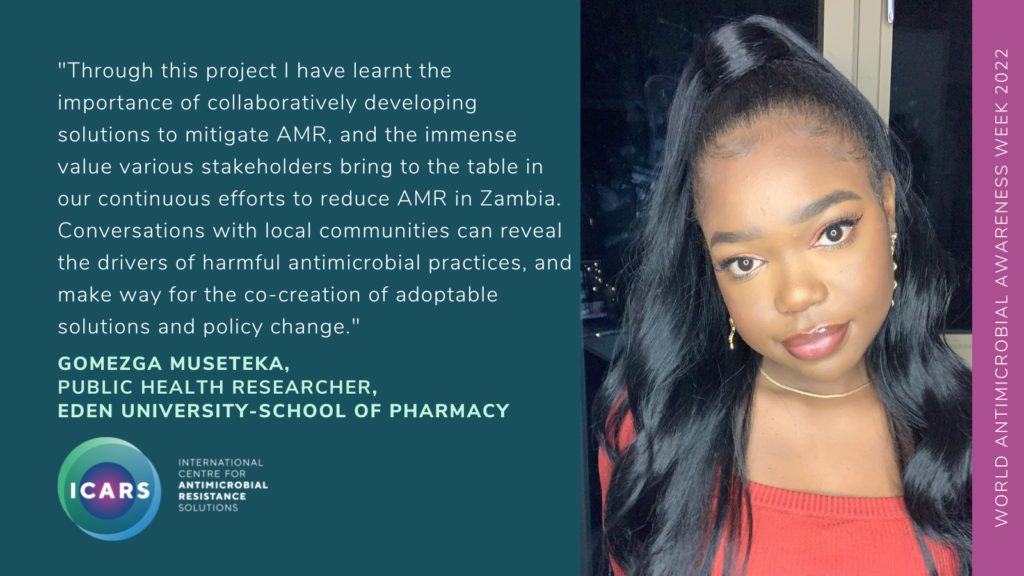
Partnership can also enable personal and team capacity building. Dr Wejdene Mansour is engaged in a project in Tunisia investigating possible interventions to reduce selection and spread of AMR from chicken production. For WAAW she reflected on how cross-country collaboration strengthens the project.
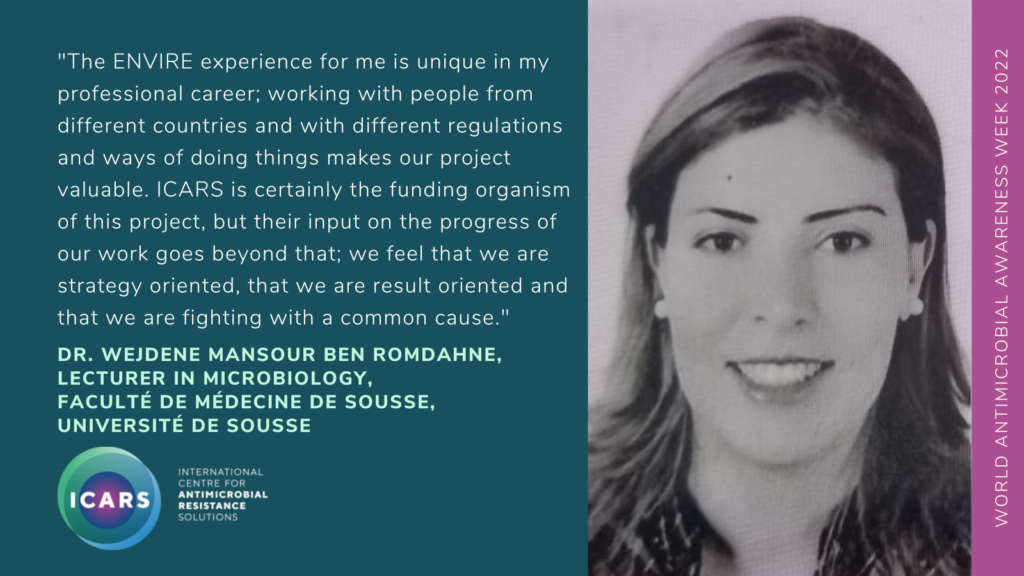
It was a pleasure to join the online campaign and join stakeholders (including those outside of the AMR field) to draw attention to the urgent need to . We hope that the momentum of the week will spur further action and collaboration over the coming weeks and months.

